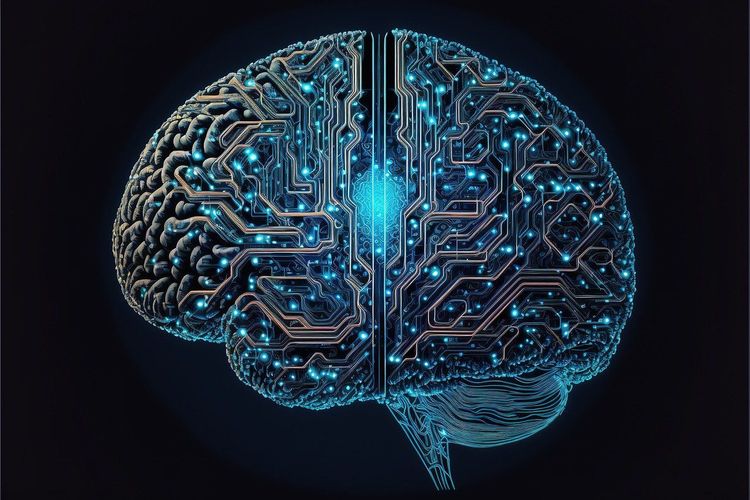Presented by MongoDB
The uncertain returns on many AI investments contrast sharply with the proven impact of AI on workforce productivity. A recent study by Harvard Business School reveals that generative AI enhances worker efficiency, enabling employees to complete tasks 25% faster while producing higher-quality outcomes. Moreover, generative AI is reshaping the "soft skills" essential for the modern workplace, leading to improved employee performance and overall job satisfaction, as highlighted by 92% of executives.
AI's ability to bolster organizational productivity—through enhanced collaboration, reskilling, and filling emerging roles—offers a significant competitive edge. Startups like 4149.AI, Arc53, and Lavender are seizing this opportunity by delivering innovative, AI-powered solutions.
To maximize the benefits of generative AI, organizations should integrate their proprietary data into large language models (LLMs). This integration, coupled with retrieval-augmented generation (RAG), addresses LLMs' limitations, such as outdated information.
“Employee productivity has emerged as a key area where generative AI can make an immediate impact on organizations of all sizes,” states Peder Ulander, Chief Marketing and Strategy Officer at MongoDB. “Leveraging proprietary operational data is crucial to unlocking generative AI’s full potential, and MongoDB proudly supports forward-thinking startups like 4149, Arc53, and Lavender in developing AI-powered applications that automate and personalize common tasks.”
4149: An AI Teammate
“Work is about how people come together and achieve goals, and generative AI presents an incredible opportunity to enhance collaboration,” asserts Adrian Vatchinsky, co-founder and CEO of 4149. 4149 envisions a future where every team meets its objectives with the support of an AI teammate, assisting with tasks ranging from research to task management and acknowledging team contributions.
To realize this vision, 4149 has developed a proactive AI agent that self-assigns tasks based on team needs. Central to this functionality is a reflection system that allows the AI to summarize communications and extract valuable insights from various projects in real time. Utilizing a custom AI-agent framework with models from OpenAI and Anthropic, 4149 has selected MongoDB as its underlying database technology, leveraging Atlas Vector Search for optimal data management.
This platform processes project documentation and team interactions, categorizing reflections and insights within Atlas Vector Search to minimize data redundancy. By storing insights alongside vector embeddings, 4149 accelerates data access and streamlines its technology stack. Higher-level insights feed into the momentum pipeline, allowing the AI to enhance its decision-making capabilities.
“By structuring our reflections as queryable data, we’ve significantly boosted our productivity and reduced data redundancy,” Vatchinsky explains. “Now, we are focused on ensuring that human and AI interactions are both impactful and meaningful.”
DocsGPT: Simplifying Developer Documentation
DocsGPT, created by Arc53, is an open-source documentation assistant that acts as a helpful chatbot for developers. Aiming to streamline the creation of user-friendly conversational experiences, DocsGPT supports developers in building chatbots and natural-language interfaces on their knowledge bases. Designed as a flexible, platform-agnostic tool, DocsGPT can utilize local LLMs for improved security and privacy.
Arc53 chose MongoDB to address a key challenge of rapid iteration on vector indexes, essential for evaluating retrieval quality across embeddings. MongoDB's capabilities enable the quick development of generative AI applications with minimal cost and complexity, ensuring synchronized access to source data and metadata via a unified API.
MongoDB Atlas is employed for application-layer storage, providing a flexible solution for evolving tool requirements. As data structure can vary, developers benefit from ease of access and improved delivery of AI-driven solutions.
“Users have reported conservatively a 20% productivity boost when using AI-assisted documentation chatbots,” notes Alex Tushynski, co-founder of Arc53. “To excel in information retrieval, iterating on vectors and embeddings is vital, and MongoDB’s vector search facilitates this.”
Lavender: Effective Sales Emails
“Lavender aims to help users write personalized, targeted, and high-quality emails quickly, enhancing reply rates and empowering email as a powerful outreach tool,” explains Jared Smith, CISO of Lavender. Crafting a well-structured email can take 15 to 20 minutes, but Lavender reduces this to just three to five minutes by automating writing assistance.
Using OpenAI’s GPT models, Lavender functions as a writing coach, collaborating with users to produce personalized email content, optimize formatting, and improve overall quality through analytics that score and refine copy while writing.
“By enhancing the signal-to-noise ratio in unstructured emails, we aspire to be strategic and leverage historical data to drive future interactions,” Smith articulates. “Engagement is crucial; we often see reply rates soar by 200 to 300 percent.”
Lavender operates on MongoDB Atlas within Google Cloud, adopting MongoDB for its flexible document data model that simplifies data management. This adaptability allows Lavender to efficiently extract insights from messy, unstructured email data, supporting vast amounts of information without cumbersome schema migrations.
“MongoDB provided a robust structure for our unstructured datasets that relational databases struggle to match, successfully scaling to billions of records,” Smith says. “Atlas Vector Search has enhanced our ability to analyze saved metadata and draw deeper insights through natural language processing.”
Advancing LLMs
“MongoDB's flexible document model, combined with native vector search capabilities, facilitates the development of RAG-powered applications,” notes Peder Ulander from MongoDB. “Our mission is to empower every organization to innovate with data, and it's exciting to observe how 4149, Lavender, and Arc53 leverage generative AI to enhance team productivity.”
The unique combination of proprietary data and advanced LLMs enables 4149, Lavender, and Arc53 to unlock new possibilities. While access to a multitude of LLMs is becoming commonplace, the true power lies in utilizing organizational data effectively.
With tools like MongoDB Atlas Vector Search, businesses can implement RAG architectures that ensure AI applications deliver relevant, up-to-date data. Selecting the right database with robust vector capabilities is essential for optimizing AI investments.
The Takeaway: Innovative AI features are revolutionizing developer workflows, while developers craft AI applications that transform global operations. Success hinges on leveraging data to its fullest potential.
Dig Deeper: Explore a range of innovative AI applications built with MongoDB tools in our library of case studies.







